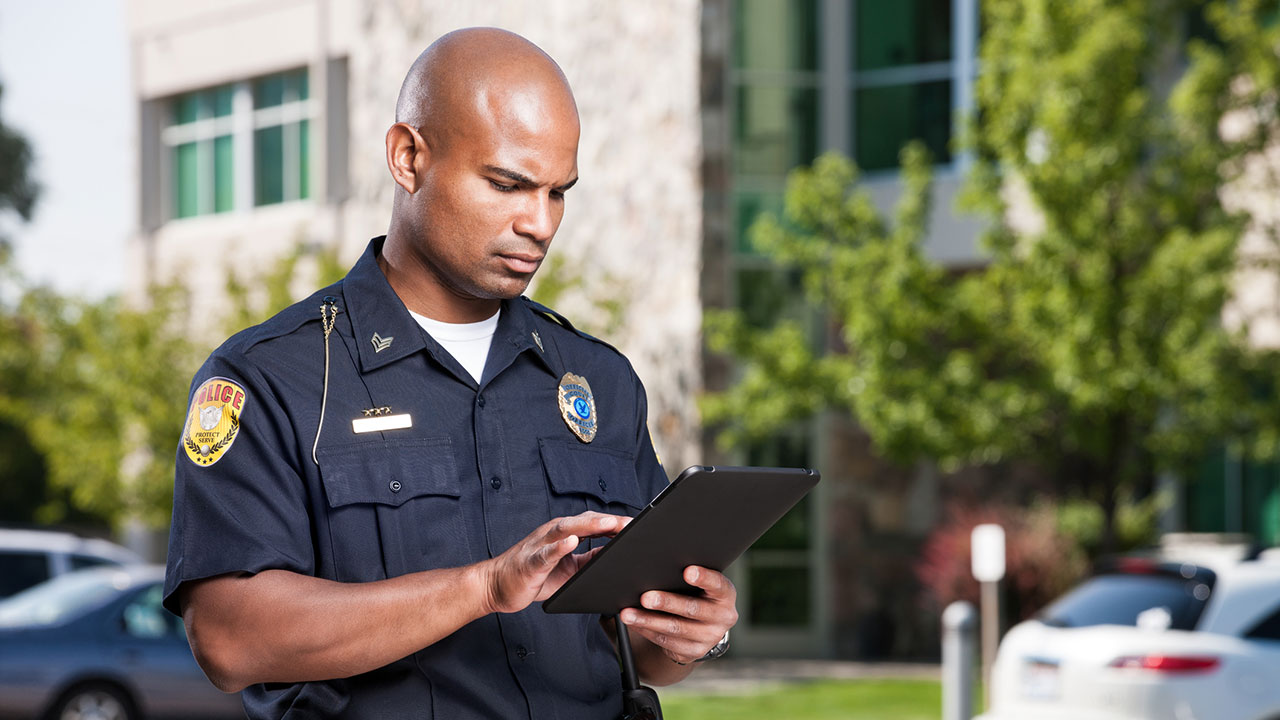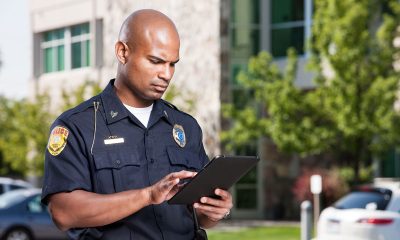Law
Understanding the Role and Structure of a Practicing Law Company

Law
Verizon for Law Enforcement: A Comprehensive Guide to Connectivity, Security, and Support

Introduction
In the rapidly evolving landscape of public safety, technology has become an indispensable tool in enhancing law enforcement operations. From real-time communication to data analytics, connectivity solutions are transforming the way officers respond to emergencies, investigate crimes, and coordinate across departments. Among the leading technology providers supporting these efforts is Verizon. The company’s specialized services, offered under the banner of Verizon for law enforcement, are designed to empower agencies with secure, reliable, and fast communication infrastructure tailored to their unique operational needs.
This comprehensive guide explores how Verizon caters to law enforcement, delving into its offerings, benefits, case studies, and how departments across the U.S. are leveraging Verizon’s capabilities to serve and protect more efficiently.
Understanding Verizon’s Commitment to Public Safety
Verizon has long recognized the importance of supporting first responders, including police departments, federal agencies, and emergency services. Through its dedicated division, Verizon Frontline, the company provides tailored communication solutions designed specifically for public safety and law enforcement professionals.
What Is Verizon Frontline?
Verizon Frontline is the network and technology platform developed for first responders, including law enforcement. It offers mission-critical communications, prioritization on the network, and innovative tools that enhance operational efficiency.
Key components of Verizon Frontline include:
-
Priority & Preemption Access: Ensures that public safety communications take precedence during times of network congestion.
-
5G and LTE Coverage: High-speed data transmission and reliable connectivity, even in remote or densely populated areas.
-
Interoperability: Seamless communication across various agencies and platforms.
Verizon for Law Enforcement: Specialized Tools and Technologies
The core strength of Verizon for law enforcement lies in its extensive suite of technologies designed to meet the diverse needs of policing and emergency response operations.
Real-Time Communication Devices
Verizon equips law enforcement agencies with advanced mobile devices, including smartphones, tablets, and ruggedized gear that are optimized for field use. These devices are often paired with secure apps and are configured to support encrypted communications, ensuring that sensitive information is protected.
Computer-Aided Dispatch (CAD) and RMS Integration
Verizon partners with software providers to deliver seamless integration with CAD and Records Management Systems (RMS). Officers can access databases, file reports, and receive dispatch notifications directly on their mobile devices, reducing response times and paperwork.
Body-Worn Cameras and IoT Solutions
The use of body-worn cameras has surged in recent years as a means of promoting transparency and accountability. Verizon facilitates real-time video streaming, cloud storage, and secure data transfer for these devices. Additionally, the company offers IoT (Internet of Things) devices for fleet tracking, environmental monitoring, and evidence management.
Drone and Aerial Surveillance Capabilities
Unmanned Aerial Systems (UAS) are becoming critical tools in modern law enforcement. Verizon’s network supports the transmission of live footage from drones, aiding in crowd monitoring, search and rescue, and tactical missions.
Enhanced Security Measures for Sensitive Law Enforcement Data
Data security is paramount in any law enforcement operation. Verizon understands the gravity of protecting criminal justice information and complies with stringent federal and state regulations, including CJIS (Criminal Justice Information Services) requirements.
Encrypted Communication Channels
Whether it’s voice, video, or text, Verizon ensures all transmissions are end-to-end encrypted. This protects against cyber threats and ensures the integrity of data during investigations and court proceedings.
Private Network Access
With Verizon Private Network solutions, law enforcement agencies can operate on secure, isolated network environments. This drastically reduces the risk of intrusion and supports compliance with internal security protocols.
24/7 Network Monitoring and Threat Detection
Verizon provides continuous network surveillance to detect and mitigate cybersecurity threats. Their Security Operations Center (SOC) works around the clock to identify vulnerabilities and respond to attacks in real-time.
Network Reliability and Nationwide Coverage
A key reason agencies choose Verizon for law enforcement is its unmatched network reliability and expansive coverage. Verizon consistently ranks at the top in third-party evaluations for network speed, performance, and availability.
First Responder Network Priority
Law enforcement officers using Verizon’s service are granted network priority during emergencies. This means their calls, texts, and data transmissions go through even during natural disasters, large-scale events, or national emergencies when networks are often congested.
5G Ultra-Wideband
With the rollout of 5G Ultra-Wideband, Verizon is enhancing the capabilities of law enforcement through lightning-fast data speeds, minimal latency, and support for emerging technologies like augmented reality (AR) for training and simulations.
Coverage in Rural and Remote Areas
One of the most critical needs for law enforcement in rural counties and remote regions is reliable connectivity. Verizon has invested heavily in building infrastructure to serve these areas, ensuring officers stay connected wherever duty calls.
Case Studies: Real-Life Impact of Verizon for Law Enforcement
Hurricane Response in Louisiana
During Hurricane Ida, Verizon Frontline provided mobile command centers and portable cell sites to help local police coordinate rescue efforts. Officers were able to stay in communication with dispatch and emergency medical services despite power outages and damaged infrastructure.
Supporting Urban Police in Chicago
The Chicago Police Department uses Verizon’s mobile data terminals (MDTs) in patrol cars to access real-time intelligence. This allows officers to pull up suspect profiles, vehicle registration data, and outstanding warrants while on the move, improving situational awareness.
School Safety Initiatives in Florida
In partnership with school districts, Verizon has deployed IoT-based threat detection systems, including gunshot detection and real-time surveillance alerts. Law enforcement agencies receive instant notifications and video feeds, enabling rapid response to campus threats.
Cost-Effective Plans and Government Discounts
Budget constraints are a reality for most law enforcement departments. Verizon offers discounted plans and devices for government agencies, ensuring that cost does not become a barrier to adopting cutting-edge technology.
Government Contracting Vehicles
Verizon participates in federal and state contracting programs such as GSA Schedules and NASPO ValuePoint. This simplifies the procurement process for law enforcement agencies and ensures compliance with public sector buying regulations.
Device Financing and Equipment Leasing
To ease the financial burden of upgrading technology, Verizon offers flexible payment plans, leasing options, and equipment trade-ins. Agencies can stay up to date without large upfront costs.
Training and Support for Law Enforcement Personnel
Even the best technology is only effective if users are properly trained. Verizon invests heavily in onboarding and continuous education for law enforcement clients.
Dedicated Public Safety Representatives
Each agency working with Verizon is assigned a public safety representative who understands the unique needs of law enforcement and provides personalized service and troubleshooting.
Onsite and Online Training
Verizon offers comprehensive training modules—both in-person and virtual—on how to use mobile applications, encrypted communications, fleet tracking systems, and more. This ensures that officers can make the most out of their tech tools.
24/7 Technical Support
Law enforcement never sleeps, and neither does Verizon’s support team. Agencies can access around-the-clock assistance to resolve technical issues, reset devices, or configure system settings.
Future Innovations in Verizon’s Law Enforcement Solutions
Looking forward, Verizon for law enforcement is focusing on integrating artificial intelligence (AI), machine learning (ML), and data analytics into policing efforts.
Predictive Policing and Crime Analytics
With access to large datasets, Verizon is working on tools that can help law enforcement agencies predict crime hotspots, allocate resources more effectively, and identify patterns in criminal behavior.
Augmented and Virtual Reality for Training
VR and AR simulations are being used for de-escalation training, situational awareness exercises, and crisis response drills. Verizon’s 5G network supports these bandwidth-heavy applications.
Automated Vehicle and Drone Integration
Verizon is testing 5G-powered autonomous drones and vehicles to assist in patrol duties, suspect tracking, and evidence collection, signaling a futuristic shift in law enforcement operations.
Conclusion: Why Verizon for Law Enforcement Is a Game Changer
In today’s high-stakes environment, law enforcement agencies need more than just radios and squad cars—they require smart, secure, and scalable technology solutions that adapt to dynamic challenges. Verizon for law enforcement delivers exactly that. With its unmatched network reliability, cutting-edge tools, commitment to data security, and unwavering support for public safety, Verizon empowers officers to serve more efficiently and safely.
By bridging the gap between traditional policing and modern technology, Verizon is not just a service provider—it’s a critical partner in the mission to protect and serve. Whether in a bustling city, a quiet rural town, or amid a natural disaster, Verizon stands ready to keep law enforcement connected when it matters most.
-

 Loan8 months ago
Loan8 months agoCitizens One Student Loan Refinance: A Comprehensive Guide to Smarter Borrowing
-

 Law8 months ago
Law8 months agoVerizon for Law Enforcement: A Comprehensive Guide to Connectivity, Security, and Support
-

 Loan8 months ago
Loan8 months agoUnderstanding the Keiser University Loan Forgiveness Program: A Complete Guide
-

 Bank Loan8 months ago
Bank Loan8 months agoHow to Apply for Business Term Loan: A Complete Guide for Entrepreneurs
-

 Uncategorized8 months ago
Uncategorized8 months agoDoes Allstate Insurance Cover Rental Cars? A Complete Guide for Travelers
-

 Insurance8 months ago
Insurance8 months agoNPN Meaning Insurance: Everything You Need to Know
-

 Insurance8 months ago
Insurance8 months agoThe Complete Guide to John Hancock Travel Insurance on ThreeBusinessInsurance.xyz

